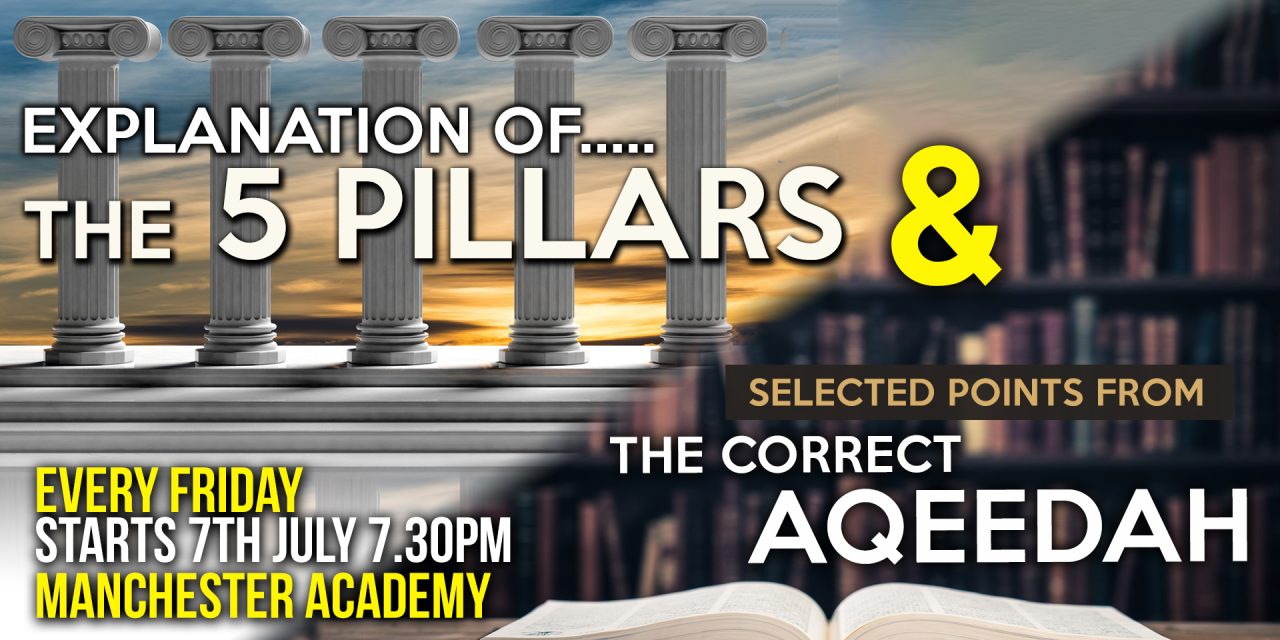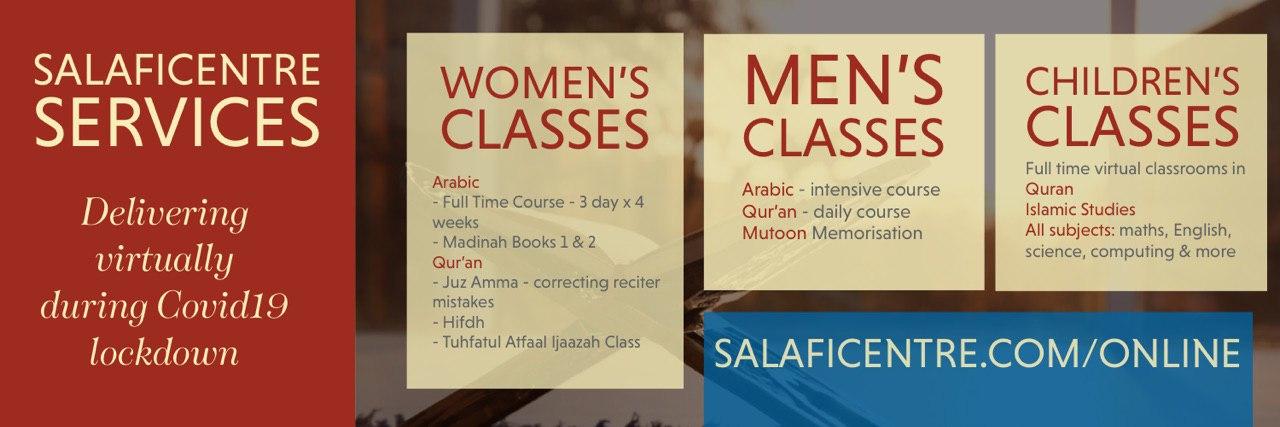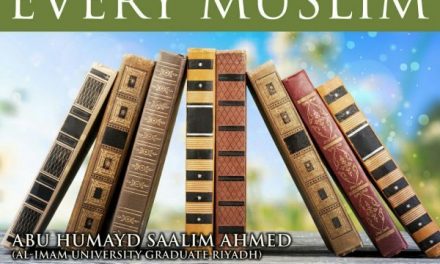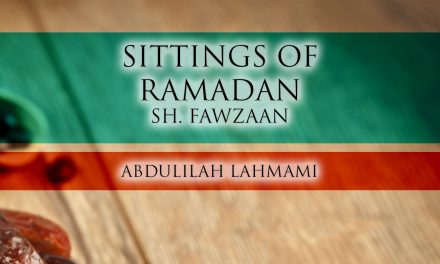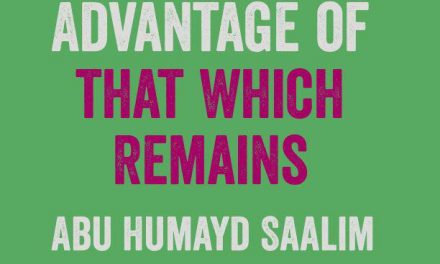The second pillar of Islam is Salah (prayer). It is the greatest pillar after the Shahadah (First pillar – Testification of Faith). It is the evidence of the truthful nature of one’s Iman.
“Whoever preserves his prayers, then they will be for him light, an evidence and a means of salvation on the Day of Ressurection. And whoever does not preserve his five daily prayers, then there will be no light, evidence nor salvation for him on the Day of Resurrection. And he will be resurrected with Qaroon, Firawn, Hamaan and Ubay ibn Khalaf (from the Munafiqoon)” – Hadith of the Messenger of Allaah Sallallaahu Alayhi Wa Sallam.
It is not sufficient to declare the shahadah upon your tongue but not combining it with actions as Allaah says:
“َّمَا يَعْمُرُ مَسَاجِدَ اللَّهِ مَنْ آمَنَ بِاللَّهِ وَالْيَوْمِ الْآخِرِ وَأَقَامَ الصَّلَاةَ وَآتَى الزَّكَاةَ وَلَمْ يَخْشَ إِلَّا اللَّهَ ۖ فَعَسَىٰ أُولَٰئِكَ أَنْ يَكُونُوا مِنَ الْمُهْتَدِينَ
(Muhsin Khan and Taqi-ud-Din al-Hilali)
The Mosques of Allah shall be maintained only by those who believe in Allah and the Last Day; perform As-Salat (Iqamat-as-Salat), and give Zakat and fear none but Allah. It is they who are expected to be on true guidance.
-Sura At-Tawbah, Ayah 18
The Prophet Sallallaahu Alayhi Wa Sallam said:
“The difference between us and them (the disbelievers) is As Salah (The Prayer). So whoever abandons it, he has disbelieved.” (Ahmed & tirmidhi)
Some scholars explain that this is a clear proof that the one who doesnt pray his five daily prayers is a disbeliever. The one who rejects the obligation of prayer is a disbeliever by consensus – no disagreement. The difference of opinion arises regarding the affair of the one who doesn’t pray out of laziness. In this differing, like all differings, we must return our affairs to Allaah and His Messenger (i.e. the Quran and the Sunnah). An evidence which supports the opinion of the scholars who say the one who leaves off prayer out of laziness is disbelief is the statement of Abdullah bin Shaqeeq (A “Taabi’i” – From the second generation of muslims) who said:
“The companions did not see the abandonment of any action to be disbelief, other than the prayer”
The first thing a person will be brought to account about is his prayer. If it is correct, he will be successful and saved, and the rest of his actions will be accepted. If it is rejected, the rest of his actions will be rejected, he will be from the losers, destroyed. (Tirmidhi and Nasaaiee)
This is referring to the first thing you will be asked about AFTER the questioning of the grave – which is the questioning of one’s Aqeedah (Creed).
Allaah says:
حَافِظُوا عَلَى الصَّلَوَاتِ وَالصَّلَاةِ الْوُسْطَىٰ وَقُومُوا لِلَّهِ قَانِتِينَ
(Muhsin Khan and Taqi-ud-Din al-Hilali)
Guard strictly (five obligatory) As-Salawat (the prayers) especially the middle Salat (i.e. the best prayer – ‘Asr). And stand before Allah with obedience [and do not speak to others during the Salat (prayers)].
-Sura Al-Baqarah, Ayah 238
And:
“And perform As-Salat (Iqamat-as-Salat), and give Zakah” 2:110
And:
“Verily, the prayer is enjoined on the believers at fixed hours.” 4:103
And:
“And enjoin As-Salat (the prayer) on your family, and be patient in offering them” 20:132
Unfortunately many people grow up being taught the Maturidi or Ash’ari Aqeedah. Which teaches that Iman is belief in the heart alone, not actions upon the limbs. As such they are extremely lax with the actions like salah.
Allaah says:
“What has caused you to enter Hell? They will say: “We were not of those who used to offer their Salat (prayers)” (74:42-43)
The Prophet Sallallaahu Alayhi Wa Sallam said:
“There is not a man when the salah comes, he perfects his wudhu, khushu’, the rukoo. Except that that prayer will be an expiation of his previous sins so long as he doesnt come with a major sin. And that is for all times.” (Muslim)
Salah is often coupled with the third pillar of Islam, Az Zakah.
Zakah is wealth taken from the rich and given to the poor. It must be given out of the persons willingness to give, not feeling forced. To give it without the willingness, it may be that the individual does not receive the reward that he would have received had it been done out of complete submissiveness to Allaah Azza Wa Jal.
Zakah helps to get rid of blameworthy charachteristics and traits. For example, stinginess, envy, etc.
The Fourth Pillar is Siyaam – Fasting the month of Ramadhan. It is a clear obligation as we see in the Ayah:
يَا أَيُّهَا الَّذِينَ آمَنُوا كُتِبَ عَلَيْكُمُ الصِّيَامُ كَمَا كُتِبَ عَلَى الَّذِينَ مِنْ قَبْلِكُمْ لَعَلَّكُمْ تَتَّقُونَ
(Muhsin Khan and Taqi-ud-Din al-Hilali)
O you who believe! Observing As-Saum (the fasting) is prescribed for you as it was prescribed for those before you, that you may become Al-Muttaqun (the pious – see V. 2:2).
-Sura Al-Baqarah, Ayah 183
Fasting is something that brings about the fear of Allaah. In it is a means of freeing ones soul from its desires and training oneself upon patience. Ramadhan is the month in which Allaah revealed the Quran as well as having many other virtues. It is obligatory to learn about the rulings of what can break your fast, whats obligatory, etc.
The final pillar is Hajj (Pilgrimage). It is obligated once in the life of the muslim – if they are able. Anything beyond that is voluntary.
The proof for the obligation of Hajj is the ayah:
“And Hajj (pilgrimage to Makkah) to the House (Ka’bah) is a duty that mankind owes to Allah, those who can afford the expenses (for one’s conveyance, provision and residence);” 3:97
Likewise there are many ahadith stating that the one who completes Hajj in the manner in which it should be completed, his sins are forgiven and it is as if he has just been born (sinless).
The pillars of Islam can be looked at in terms of frequency:
1) Shahadah – Must be present at ALL times.
2) Salah – 5 times a day
3) Sawm – A month a year
4) Zakah – Once a year
5) Hajj – Once a lifetime
Ibn Uthaymin says that these pillars are a perfection of the test upon the slave. A slave is tested in all aspects. As it may be that a person happily prays 5 times a day, but he finds it very difficult to depart from his wealth.
